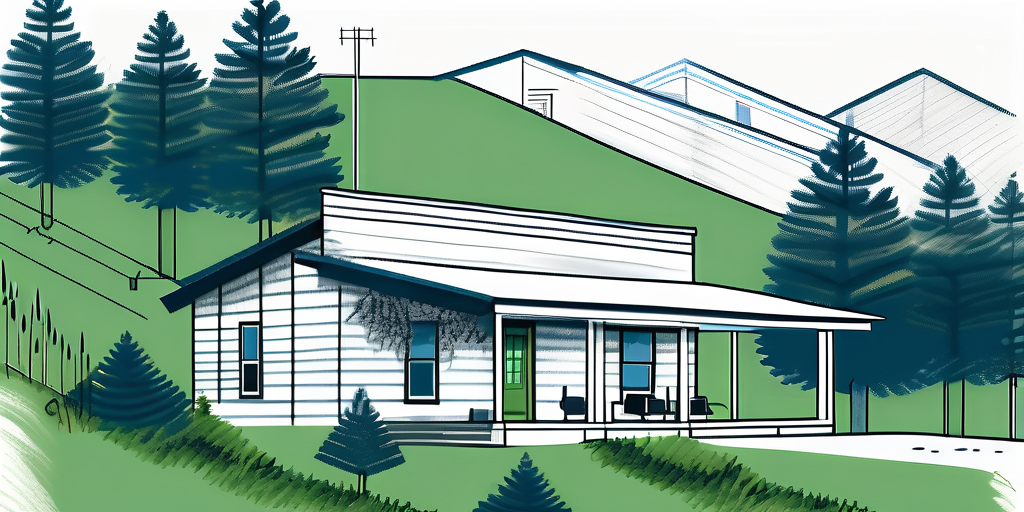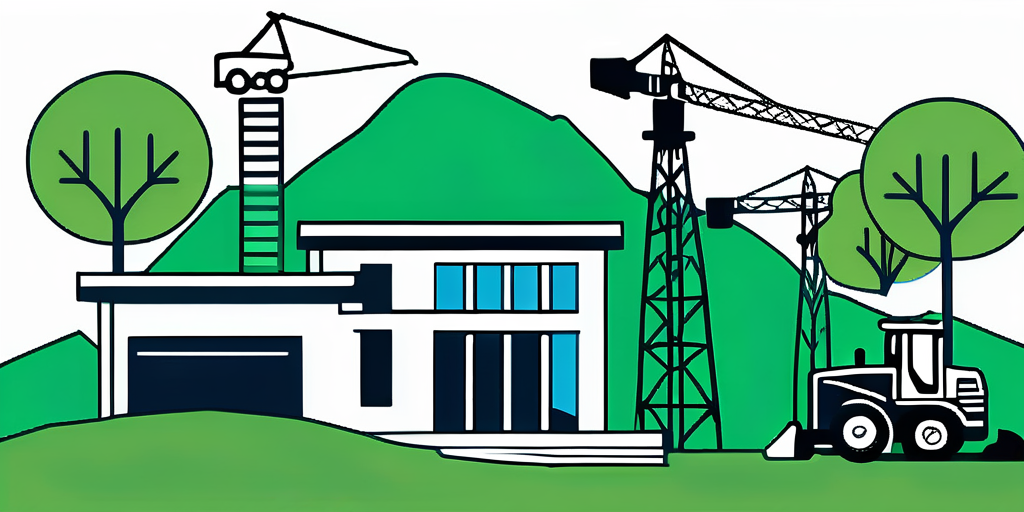
Building a home or structure in a new area comes with its own set of unique challenges and rewards. At Tennessee National, prospective builders often have pressing questions about the fundamental aspects of the building process. This section aims to unveil those basics, providing valuable insights for anyone contemplating a construction project in this scenic region.

Location is paramount when it comes to building a home. Tennessee National is renowned for its picturesque views, access to outdoor activities, and a tight-knit community. Choosing a lot that aligns with your lifestyle is essential. Some may prefer a wooded lot for privacy and nature walks, while others may lean toward a homesite with scenic lake views.
Moreover, consider proximity to amenities such as schools, healthcare facilities, and shopping. A well-chosen location can enhance your living experience and provide ease of access to daily necessities. Additionally, the surrounding environment plays a significant role in your daily life; for instance, living near hiking trails or fishing spots can enrich your leisure time, making every weekend feel like a mini-vacation.
Acquiring land in Tennessee National involves several steps. First, it is crucial to research available properties, which can be done through real estate listings or local agencies. Once potential parcels are identified, you'll want to visit each site to get a feel for the land and its surroundings.
Securing a land purchase often requires working with an experienced real estate agent familiar with local regulations and market trends. They can guide you through negotiations and ensure that the transaction goes smoothly, paving the way for your construction journey. Furthermore, understanding the history of the land can also be beneficial; knowing whether the area has been developed previously or if it has unique geological features can influence your building plans and future property value.
Understanding local regulations is vital when building at Tennessee National. Developers must comply with building codes, zoning laws, and community guidelines. These regulations are designed to ensure safety, environmental preservation, and to maintain the character of the community.
Before beginning construction, tapping into resources such as the local planning office or even consulting an attorney specializing in real estate can provide clarity. They will help you navigate the necessary permits and approvals required for your project. Additionally, engaging with the community can offer insights into unwritten rules and expectations that may not be documented but are important for harmonious living. Local homeowner associations (HOAs) often have their own guidelines that can affect your design choices, so being informed can save you time and potential conflicts down the line.
The construction process can seem daunting, but with the right preparation and support, it can be an exhilarating experience. This section breaks down essential steps that will help you manage your project effectively.
Your construction team plays a crucial role in turning your vision into reality. Start by researching potential contractors, builders, and subcontractors in the Chattanooga area. Look for reviews, past projects, and recommendations from fellow homeowners.
It’s advisable to conduct interviews with several candidates. Discuss your project goals, budget, and expected timelines with them. Pay attention to their communication style and how well they understand your vision, as this relationship will be pivotal during the entire building process. Additionally, consider asking for references from previous clients to gain insight into their work ethic and reliability. A solid construction team not only brings technical expertise but also a collaborative spirit that can make the process smoother and more enjoyable.
Every building project is unique, and timelines can vary significantly based on multiple factors, including the size and complexity of the home, weather conditions, and availability of materials. Generally, the construction phase can take anywhere from a few months to over a year.
It's important to set realistic timelines and remain flexible. Regular communication with your construction team can help keep the project on track and allow you to make informed decisions as challenges arise along the way. Moreover, consider creating a detailed project schedule that outlines key milestones and deadlines. This not only helps you stay organized but also provides a clear roadmap for your team to follow, ensuring everyone is aligned on expectations and deliverables throughout the construction journey.
Like any major project, unexpected challenges can occur during construction. This could range from weather delays to issues with supply chain resources or even regulatory hurdles. Preparing for these challenges is critical.
Maintaining an open line of communication with your builder is vital. Regular progress meetings can help address issues as they arise, and a good contractor will anticipate potential problems and present solutions that keep the project moving forward. Furthermore, consider developing a contingency plan that outlines how you will handle various scenarios, such as budget overruns or extended timelines. This proactive approach not only minimizes stress but also empowers you to make strategic decisions that align with your overall vision, ensuring that your project stays on course even when faced with unforeseen obstacles.
Securing financing is one of the most crucial aspects of your building project. Understanding the financial landscape will equip you with the knowledge to make informed decisions before and during construction.

There are various financing options available for building your home, including conventional loans, construction loans, and even government-backed loans such as FHA or VA loans. Each option has its own pros and cons.
Consulting with financial institutions or a mortgage broker experienced in building financing can provide insights tailored to your financial situation. They can help you compare interest rates, terms, and the overall financial commitment associated with each option. It’s also wise to explore local credit unions or community banks, as they may offer competitive rates and personalized service that larger institutions might not provide.
Building a home entails numerous costs that extend beyond just the purchase price of the land. Factors like permits, construction materials, labor, interior finishes, and landscaping should all be factored into your budget.
Identifying all potential expenses allows you to create a more accurate budget and prevents financial strain later in the project. It could be beneficial to set aside an additional 10-20% for unexpected costs that might arise during construction. Additionally, consider the impact of market fluctuations on material costs, as prices for lumber, steel, and other essentials can vary significantly based on supply chain conditions and demand.
Budgeting for a building project can feel daunting, but breaking it down into manageable parts makes it easier. Start by creating a detailed cost estimate that includes every aspect of your project, from land acquisition to final landscaping touches.
Additionally, regularly reviewing your budget throughout the construction process will help you stay on track and make adjustments as needed to avoid surprises. Engaging a financial advisor or a project manager can also provide an extra layer of oversight, ensuring that your financial strategy aligns with your building goals. Furthermore, utilizing budgeting software or apps can streamline the tracking of expenses and help visualize your financial commitments, making it easier to stay within your planned budget.
The environment plays a critical role in the construction process, especially at a beautiful location such as Tennessee National, where nature is part of the appeal. Understanding the environmental factors that can influence your build is essential.

Tennessee National experiences diverse weather patterns, and understanding these factors can influence your design and construction methods. From seasonal rains to the potential for severe storms, choosing the right materials and construction techniques can enhance the durability of your home.
Additionally, leveraging the local climate for energy efficiency is a smart strategy. Positioning your home to take advantage of natural light and ventilation can reduce energy consumption and create a more comfortable living environment. For instance, large windows facing south can maximize sunlight during winter months, while overhangs can provide shade during the hot summer, thus balancing heating and cooling needs effectively.
Building responsibly means being mindful of the ecological impact your project could have. It is essential to conduct an environmental assessment to understand any sensitive ecosystems in the area that may be affected by your construction.
Partnering with professionals who specialize in environmental management can ensure that your project adheres to regulations and minimizes harm to the local wildlife and vegetation. This might include strategies such as creating buffer zones around water bodies or preserving existing trees that provide habitat for local fauna. Engaging with local conservation groups can also provide insights into best practices that align with the community's ecological goals.
Sustainability in building is not just a trend; it’s a necessity. Many builders now incorporate green building practices that reduce waste, increase energy efficiency, and promote the use of sustainable materials. This can include elements like solar panels, energy-efficient appliances, and sustainable building materials.
Embracing sustainable practices not only benefits the environment but also adds value to your property and can lead to savings on utility bills over the long run. As a builder in Tennessee National, considering these elements will showcase your commitment to preserving the beautiful landscape. Furthermore, integrating features such as rainwater harvesting systems or green roofs can enhance your home’s sustainability profile, allowing for better water management and improved insulation, respectively.
In summary, building at Tennessee National involves an intricate dance of navigating regulations, building practices, and financial planning. By understanding the basics, approaching the construction process with a solid plan, and being mindful of environmental factors, you can create a home that meets your goals while respecting the nature surrounding you. Moreover, engaging with the local community throughout the building process can foster a sense of shared responsibility and pride in maintaining the natural beauty of Tennessee National, ensuring that future generations can enjoy its splendor as well.